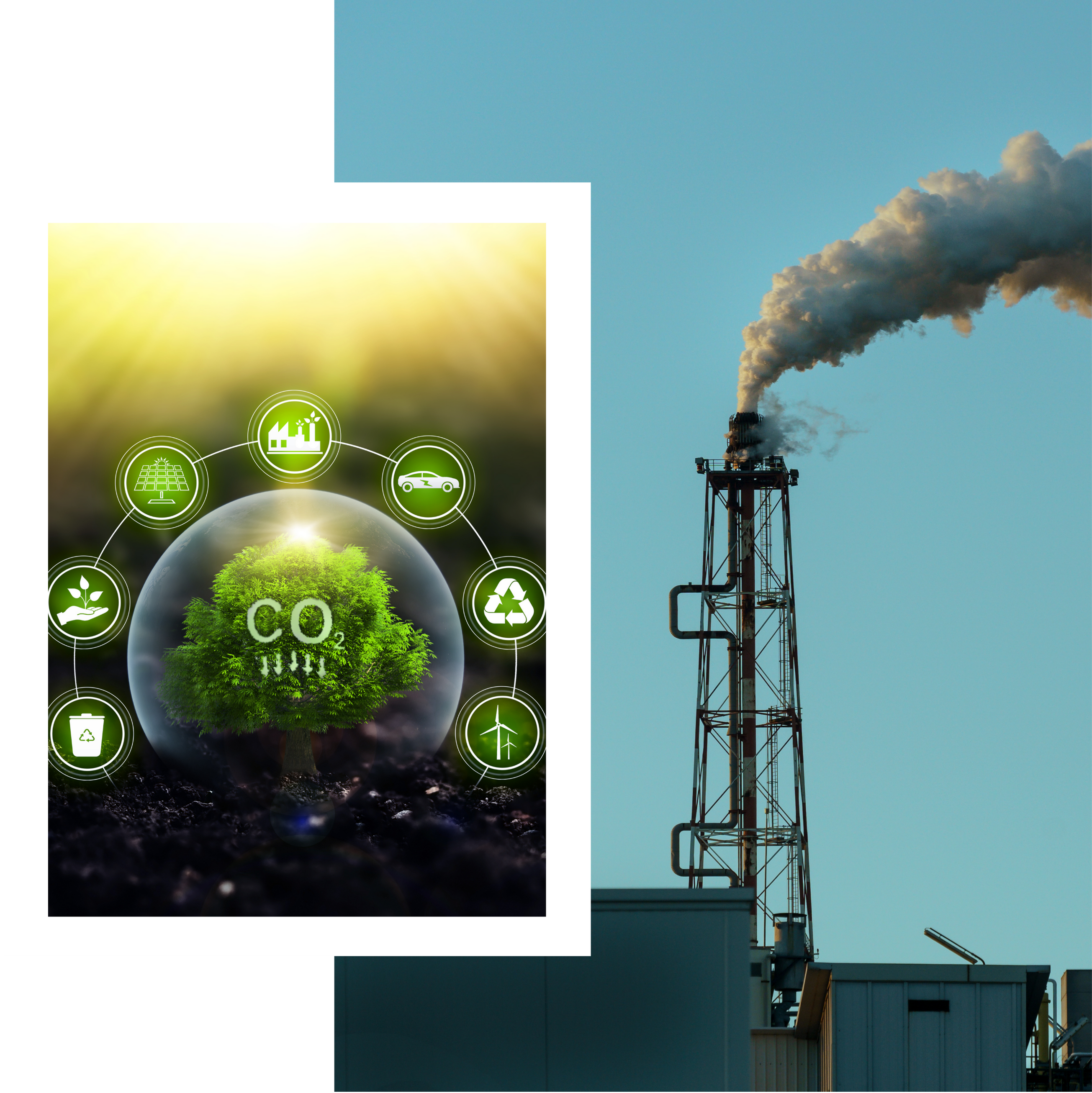Why Bamboo?
Why Bamboo?
Bamboo is one of the fastest-growing plants on Earth, with some species growing up to 91 cm (35 inches) per day. It reaches maturity in just 3 to 5 years, compared to 20 to 50 years for most softwoods and hardwoods. This rapid growth and ability to regenerate after harvesting make it an exceptionally sustainable and renewable resource.
Environmental Benefits

Carbon Sequestration
Bamboo forests can sequester up to 12 tons of carbon dioxide per hectare per year, which is 30% more than typical hardwood forests. This significant carbon absorption helps combat climate change by reducing greenhouse gases in the atmosphere

Oxygen Production
Bamboo releases 35% more oxygen than an equivalent stand of trees, enhancing air quality and contributing to a healthier atmosphere.

Soil Conservation
The extensive root system of bamboo binds the soil, reducing erosion by up to 75%. It also enhances water infiltration by 60%, improving water retention and aiding in land restoration.

Economic Advantages

Renewable Resource: With a harvest cycle of 1 to 5 years, bamboo provides a continuous supply of raw material without the need for replanting, unlike hardwoods that can take decades to mature.

Low Maintenance: Bamboo requires no fertilizers, pesticides, or herbicides due to its natural antibacterial agent called bamboo kun, reducing chemical runoff and environmental impact.

Job Creation: The global bamboo industry is valued at over $60 billion, providing employment opportunities for millions, especially in rural communities where bamboo is abundantly available
Economic and Financial Benefits
Cost-Effective and Profitable Production

Abundant Raw Material: Bamboo’s rapid growth rate—some species grow up to 91 cm (35 inches) per day—ensures a plentiful supply, reducing raw material costs.

Lower Capital Investment: Setting up bamboo charcoal production facilities requires less capital compared to traditional fossil fuel extraction and processing plants.

High Yield: Bamboo’s high biomass output per hectare leads to increased charcoal production, enhancing profitability.


Market Expansion Opportunities

Growing Demand: With a global shift towards sustainable products, the market for bamboo charcoal is expanding in sectors like energy, agriculture, and consumer goods

Product Diversification: Beyond fuel, bamboo charcoal can be processed into activated carbon for water purification, cosmetics, and medicinal applications, opening additional revenue streams.

Export Potential: Countries rich in bamboo resources can capitalize on export opportunities, tapping into international markets seeking sustainable energy solutions.
Job Creation and Economic Development

Rural Employment: The cultivation and processing of bamboo create jobs in planting, harvesting, production, and distribution, stimulating rural economies.

Skill Development: Training programs in bamboo cultivation and charcoal production enhance the skill set of the workforce, leading to higher productivity and innovation.

Entrepreneurship Opportunities: Small and medium-sized enterprises can thrive in the bamboo charcoal industry due to lower entry barriers and increasing demand.

Environmental Benefits

Sustainable Resource Management

Renewable Biomass: Bamboo is a perennial grass that regrows after harvesting without the need for replanting, ensuring a sustainable supply.

Reduced Deforestation: Utilizing bamboo reduces reliance on wood from forests, helping to preserve natural habitats and biodiversity.

Land Rehabilitation: Bamboo can grow on degraded lands, improving soil quality and reducing erosion, thus rehabilitating the environment.
Lower Carbon Emissions

Carbon Neutrality: Bamboo absorbs significant amounts of CO₂ during its growth. When converted to charcoal and used as fuel, the overall carbon footprint is substantially lower compared to fossil fuels.

Cleaner Burning Fuel: Bamboo charcoal burns more efficiently with higher calorific value (approximately 29 MJ/kg) and emits fewer pollutants, contributing to better air quality.

Carbon Sequestration with Biochar: The use of bamboo biochar in soil locks carbon into the ground for centuries, effectively removing CO₂ from the atmosphere.


Environmental Conservation

Soil Improvement: Bamboo charcoal enhances soil fertility by improving nutrient retention and microbial activity, leading to healthier crops and ecosystems.

Water Purification: Due to its high adsorption capacity, bamboo charcoal filters impurities, improving water quality for communities and industries.

Waste Reduction: Bamboo processing residues are utilized in charcoal production, ensuring minimal waste and promoting a circular economy.
Emphasis on Sustainability and Renewable Energy
Aligning with Global Renewable Energy Goals

Alternative Energy Source: Bamboo charcoal serves as a renewable energy source that can replace coal and wood, supporting the shift towards sustainable energy.

Energy Accessibility: Bamboo charcoal provides a cost-effective energy solution for rural and off-grid areas, enhancing energy security and accessibility.

Supporting Climate Action: By reducing greenhouse gas emissions and promoting sustainable practices, bamboo charcoal contributes to global efforts against climate change.


Technological Advancements and Innovation

Efficient Production Technologies: Innovations in kiln design and carbonization methods increase yield and reduce emissions during production.

Integration with Modern Energy Systems: Bamboo charcoal can be used in advanced energy applications, including combined heat and power (CHP) systems and fuel cells.

Research and Development: Ongoing studies focus on improving the properties of bamboo charcoal for specialized uses, fostering innovation in renewable energy technologies.
Compliance with Sustainable Development Standards

Certifications and Standards: Bamboo charcoal production can adhere to international sustainability standards, such as the Forest Stewardship Council (FSC) certification.

Corporate Social Responsibility (CSR): Companies involved in bamboo charcoal production demonstrate commitment to environmental stewardship and social responsibility

Community Engagement: Collaborative projects with local communities ensure equitable benefits, aligning with ethical and sustainable business practices

Conclusion
Bamboo charcoal exemplifies how renewable resources can be harnessed to provide sustainable energy solutions while delivering economic and environmental benefits. Its production and use align with global efforts to transition to cleaner energy sources, reduce carbon emissions, and promote sustainable development.
By focusing on bamboo charcoal, we tap into a resource that is not only renewable but also capable of driving economic growth, fostering community development, and preserving the environment for future generations. Embracing bamboo charcoal is a strategic move towards a sustainable and prosperous future, making it a key component in the global renewable energy landscape.
